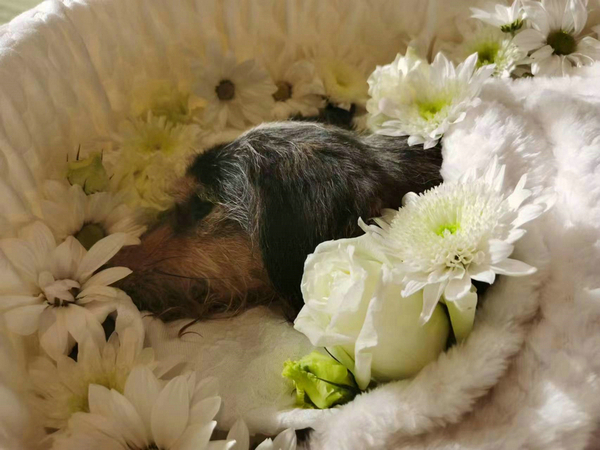Development of animal funeral services needs much greater legal protection


The expanding market of the pet funeral industry requires intensified legal protection to ensure a respectful and regulated handling of carcasses, said pet lovers and practitioners.
"The fee standards of pet funerals are similar, but there is a disparity in quality," said a 60-year-old pet owner surnamed Wang after consulting four pet funeral homes in Hubei's Wuhan.
"A more comprehensive animal protection law would benefit not only animals but also humans, including pet owners, practitioners and those who do not raise pets."
Wang's Bichon Frise, 14, was declared critically ill because of heart and kidney failure by the vet very early on, but managed to pull through several resuscitation attempts. This led Wang to contemplate the end-of-life arrangements well in advance.
"At first, I was hesitant about cremation, feeling there would be nothing left afterward. However, the fact that the location where my friend buried her pet was coincidentally renovated changed my mind," she said, expressing satisfaction with the arrangement as it allows her to take the urn with her when traveling.
He Haifeng, a pet mortician in Wuhan, said there are no dedicated pet cemeteries in China.
The Animal Epidemic Prevention Law mandates the harmless disposal of diseased and deceased animals, yet corresponding provisions haven't been well implemented, He said.
"Various departments, such as environmental sanitation, agriculture and rural affairs, civil administration and epidemic prevention, are involved in carcass treatment, but no leading department is designated and no division of responsibilities is outlined," He added.
Although new to the industry, a pet mortician surnamed Li has already experienced the competitiveness of the market and observed certain "gray areas" being exploited by profit-driven individuals, all due to a lack of regulations.
Li went on a deliberate trip to Taiwan to study the techniques, standards and cultures related to pet funerals before starting her business in Beijing.
"Unlike the legal classification of pets as property in the Chinese mainland, people in Taiwan define pets as animals valued for companionship and viewing, leading to a greater acceptance of pet funerals," she said.
Through extensive early preparations, Li introduced the home funeral service to the Chinese mainland, allowing pet owners to recall cherished memories in the comfort of familiar surroundings and express their grief freely. However, some have parroted this practice without considering the necessary design elements or prioritizing the comfort and well-being of pet owners.
"This has proved to be effective in psychological relief, but non-standardized operation may ruin the service's reputation and even cause unexpected harm to pet owners," she said.
Local regulations in Taiwan stipulate that pet owners should register for the pets' birth, acquisition, transfer, loss and death. It also stipulates to implant microchips for identification.
It not only reduces the number of stray cats and dogs by preventing casual abandonment, but also provides technological support for implementing harmless disposal of pet remains, she said.
Peng Chengcheng contributed to this story.




































